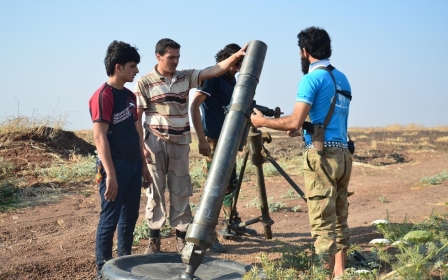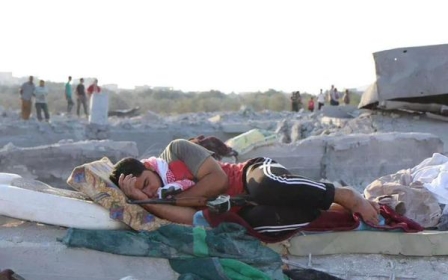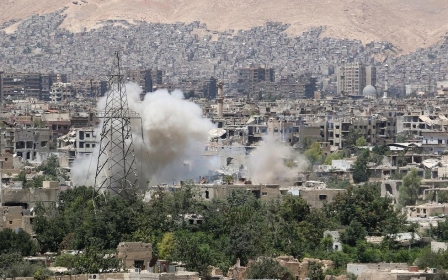Fighting resumes in Syrian towns as ceasefire ends

A brief ceasefire in the town of Zabadani near the Syrian-Lebanese border and in the villages of Fuaa and Kafraya in the northern Idlib province ended late on Friday as fighting resumed between armed opposition groups and fighters allied to the Syrian government.
The two villages in Idlib are under government control but are besieged by rebel opposition group Ahrar al-Sham, while Zabadani is the last remaining stronghold for the opposition in the Qalamoun moundatin and has been under near constant attack by Iranian and Lebanese Hezbollah militias which support Assad.
The violence came despite talks about extending the 48-hour truce which it was hoped could lead to a lasting ceasefire in the area.
Shortly after the ceasefire ended, Syrian state television said a child and her father had been killed and 12 others wounded in “terrorist shelling” in Fuaa and Kafraya.
While the information could not be independently verified, a resident from Fuaa who wished to remain anonymous confirmed to AFP that the fighting had resumed.
“Today we’ve been hearing the sound of explosions since dawn,” the resident said. “The truce failed and the attacks have resumed.”
The UK-based Syrian Observatory for Human Rights said opposition fighters had fired 20 missiles at the two villages. The monitoring group also reported shelling in Zabadani.
The truce agreement between rebel groups and pro-government factions, came into effect in the early hours of Wednesday morning.
Before its ended, intensive negotiations had been under way to try and prolong the agreement.
The talks centred on the withdrawal of rebels from Zabadani and the evacuation of civilians from Fuaa and Kafraya.
But the negotiations reportedly stumbled over an opposition insistence that thousands of prisoners be released from government jails, according to Observatory chief Rami Abdel Rahman.
He said negotiations on the deal were continuing despite the ceasefire's collapse.
"The talks are ongoing, but there are breaches in the ceasefire," he said, citing sources close to the talks.
"It's not clear if the breaches are attempts by the parties to improve the conditions of the deal or come from those who want to thwart the negotiations," he said.
More than 210,000 people have been killed in the four-and-a-half year uprising against the government. While smaller, local truces have been brokered, few larger deals have managed to endure for long.
New MEE newsletter: Jerusalem Dispatch
Sign up to get the latest insights and analysis on Israel-Palestine, alongside Turkey Unpacked and other MEE newsletters
Middle East Eye delivers independent and unrivalled coverage and analysis of the Middle East, North Africa and beyond. To learn more about republishing this content and the associated fees, please fill out this form. More about MEE can be found here.




